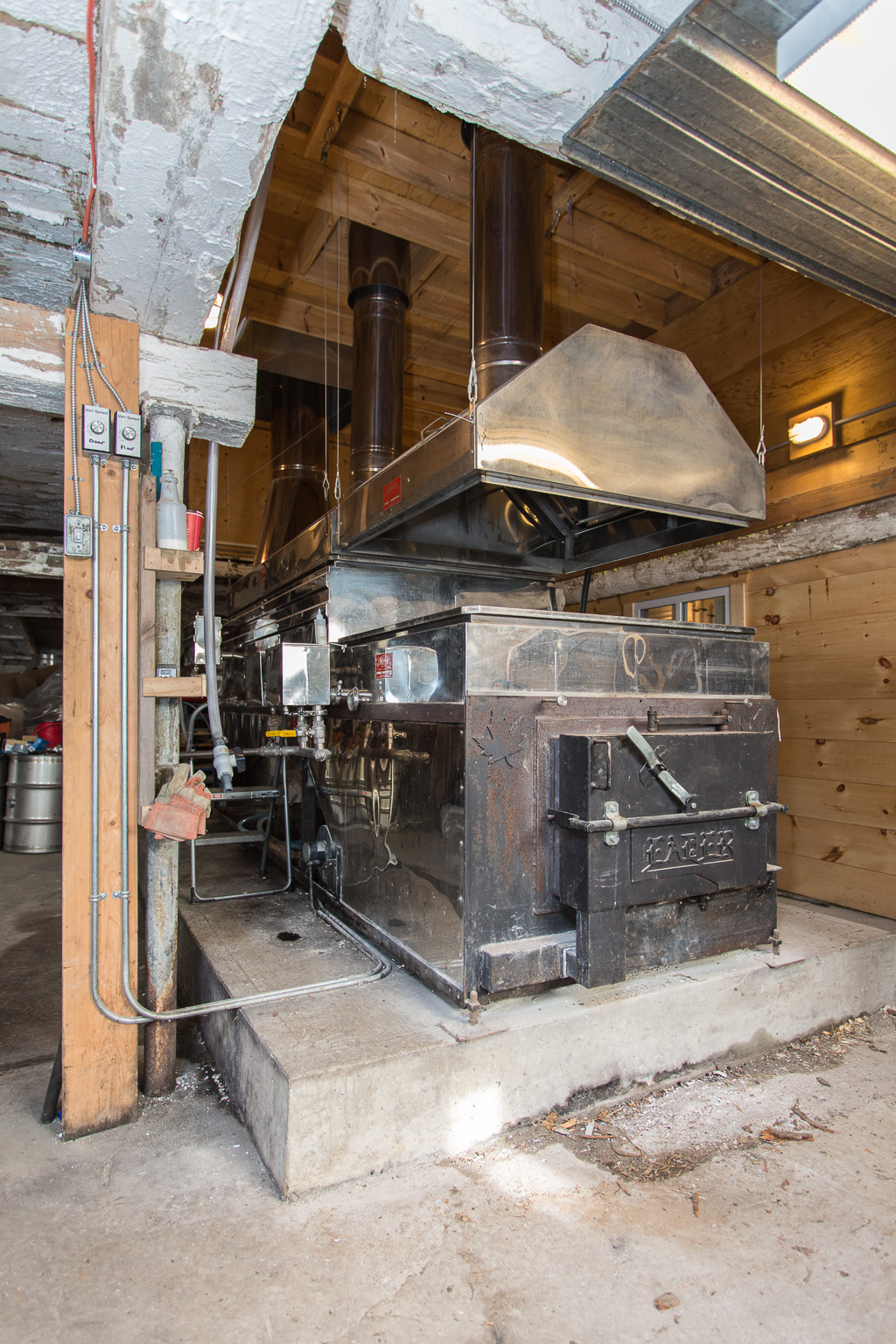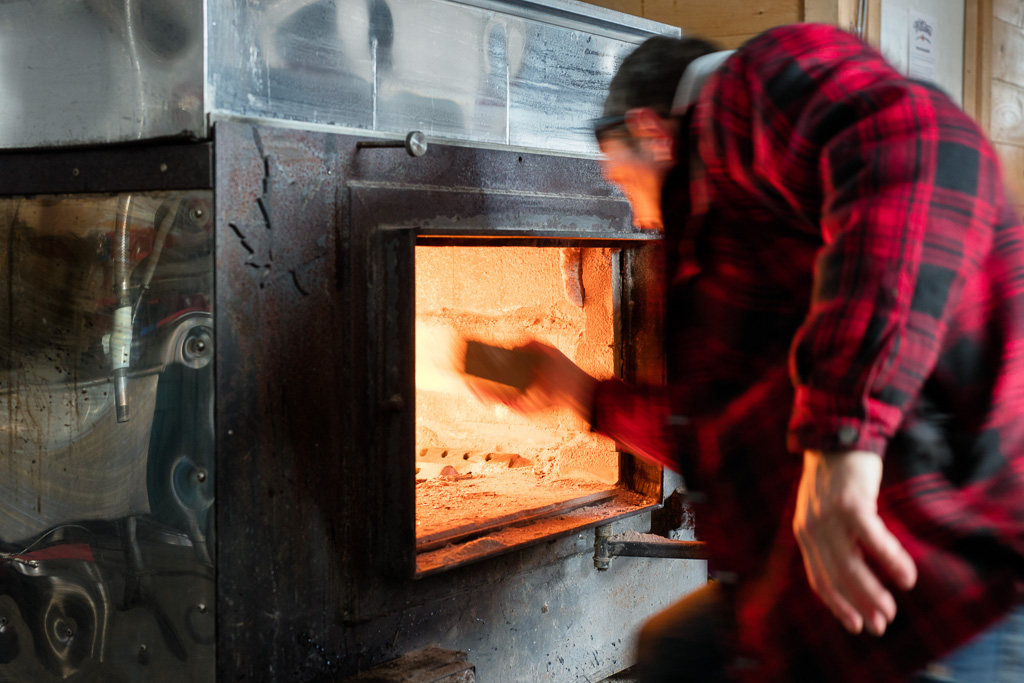In an earlier post, we saw how sap collected in the sugar bush and delivered to the barn is then passed through the RO (reverse osmosis) machine to increase the sugar concentration. From there, it goes on to the evaporator where the boiling sap passes back and forth through a series of channels until it reaches the magic concentration of 66 ºBrix.
Large scale operations sometimes use evaporators heated with fuel oil. At Williams Farm, John heats the evaporator with a wood fire. There are a couple reasons for doing this. The first is that most of the wood is culled from the property as part of the natural process of managing the sugar bush. Using it as a natural fuel is a useful way to dispose of the logs. The second reason is more speculative. Many artisanal producers insist there is no substitute for a wood fire. Certainly, when you stand in the barn during a boil and you breathe in that campfire smell, there’s something about it … it smells like home. Does that “hearth and home” smell make its way into the product?
If you were to talk to large producers in Québec, they would probably say no, it makes no difference how you heat an evaporator. In fact, the PPAQ or Producteurs et productrices acéricoles du Québec, is premised on the idea that maple syrup is perfectly fungible. The PPAQ wouldn’t act as the clearing house for more than 70% of the global maple syrup supply unless it believed that the product from one place is no different than the product from another place.
However, artisanal producers tend to regard what they do more as a craft or, in the case of indigenous producers, as a practice invested with a spiritual dimension. On their view, there are subtle ways in which every step of the process contributes to the flavour, from care of the trees and soil in the sugar bush, to decisions around pest management, all the way to the logs that fire the evaporator. They sometimes draw an analogy to wine-making. Small wineries who craft their vintages from grapes grown in local vineyards will speak of the terroir, fermentation practices and barrel aging to distinguish their wines from large producers who treat wine-making more like chemistry.

